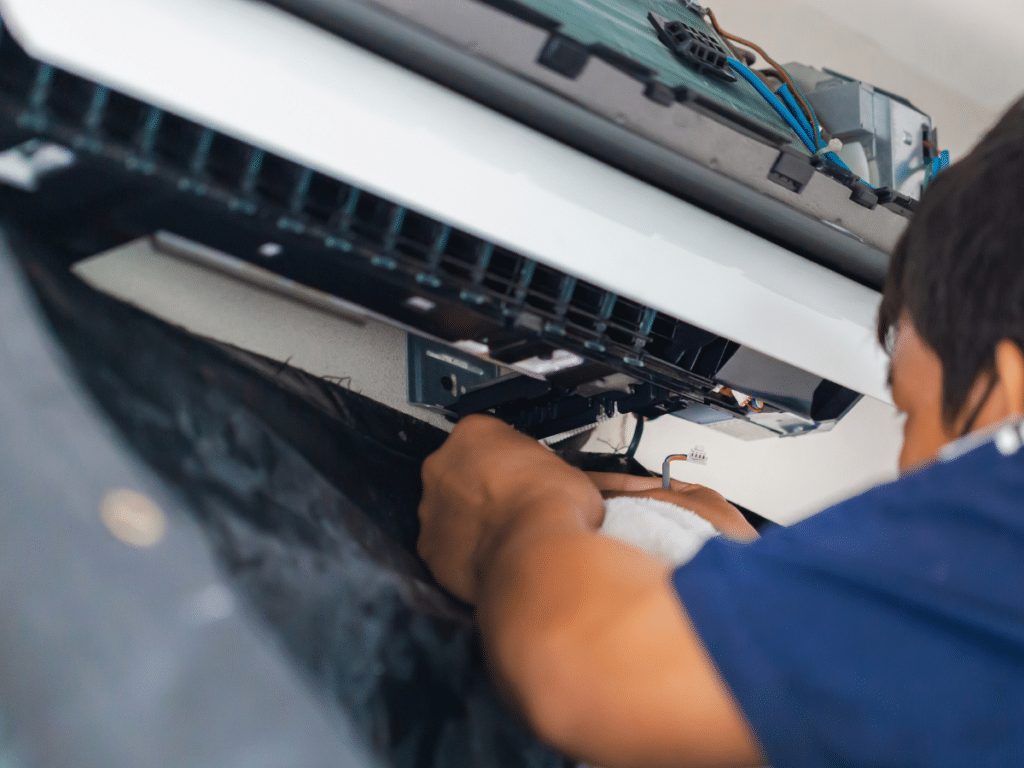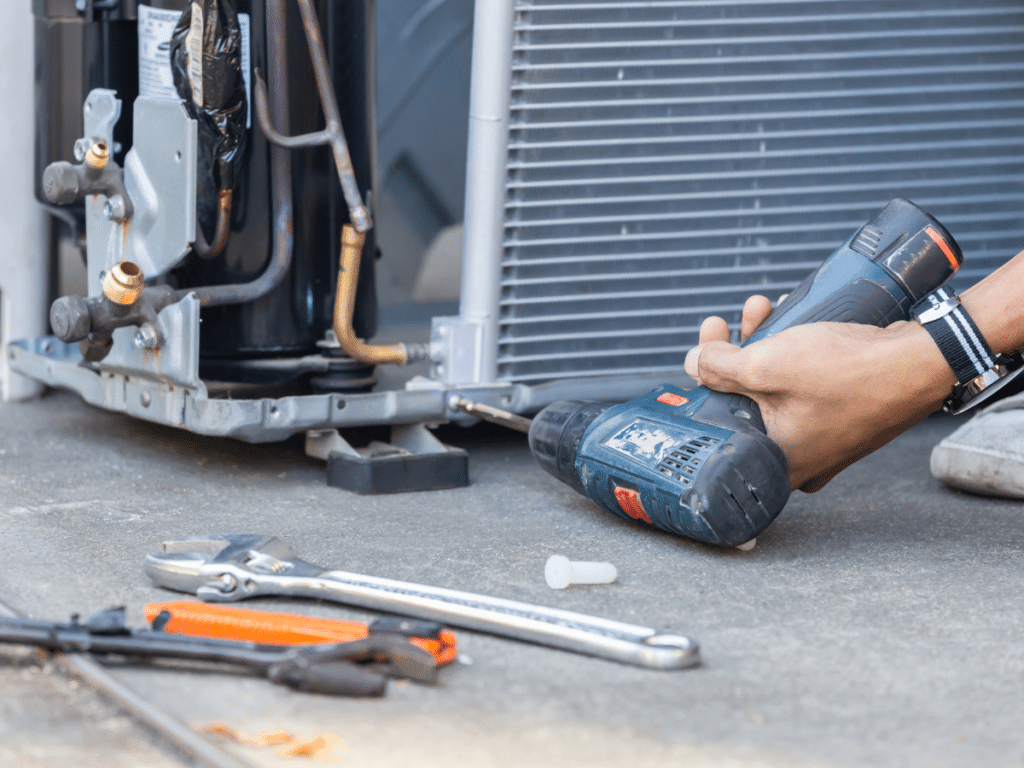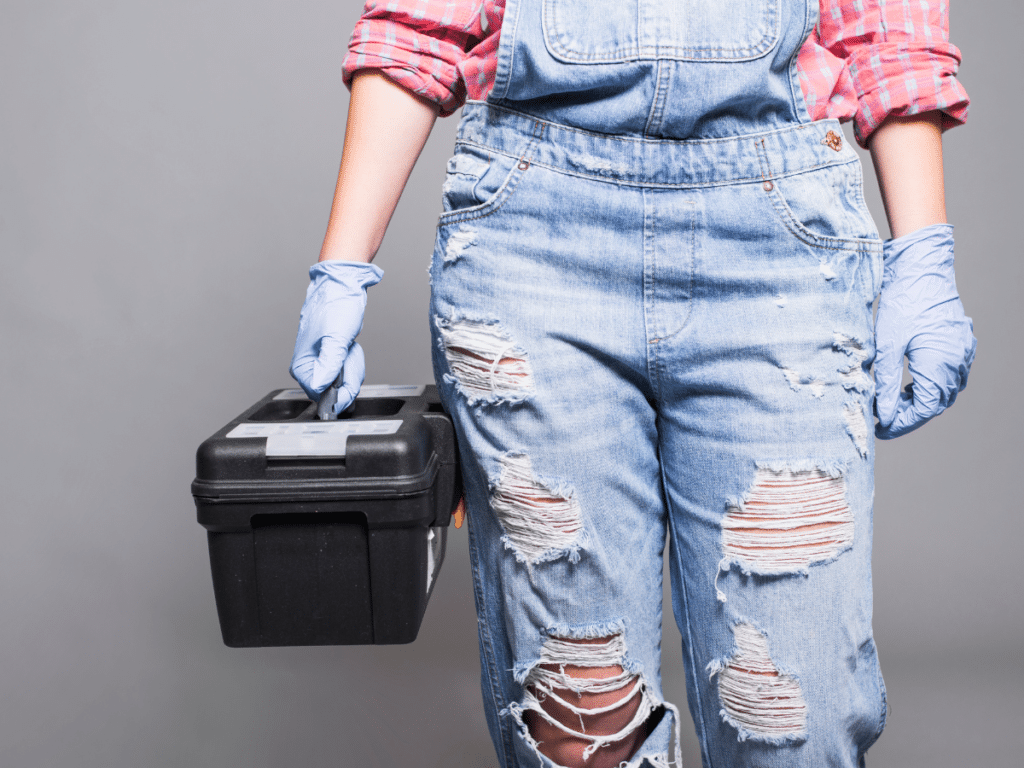As a homeowner, it’s natural to want to tackle various projects around the house, from painting and gardening to simple repairs. However, when it comes to your heating, ventilation, and air conditioning (HVAC) system, it’s crucial to leave the repairs to the pros, like us at HendrixAir.
DIY repairs may seem like a budget-friendly option, but they’re often incredibly dangerous and lead to expensive consequences down the road. In this blog post, we will discuss the dangers of handling repairs yourself and explain why it’s best to trust the pros.

Lack of Proper Training and Expertise
HVAC systems are complex and require specialized knowledge and training to repair and maintain correctly. Most homeowners do not have the necessary skills or experience to handle these repairs safely and efficiently.
Attempting to fix your system without the proper training can result in further damage, increased costs, and potential safety hazards.
More > Hendrix How to Guide: Improving Your Home’s Indoor Air Quality
Increased Risk of Carbon Monoxide Poisoning
One of the most significant dangers of DIY repairs is the increased risk of carbon monoxide poisoning.
Carbon monoxide is an odorless, tasteless, and
colorless gas that is extremely dangerous when inhaled.
It can be produced by poorly maintained or damaged HVAC systems, especially when combustion processes are involved.
Licensed technicians, like our pros at HendrixAir, know how to identify potential carbon monoxide leaks and correct them to ensure your home is safe from this deadly gas.
Drop your tools > Pick up the phone (912) 324-5893
Violation of Local Codes and Regulations
HVAC systems must adhere to local building codes and regulations to ensure safety and efficiency. DIY repairs are often performed without the necessary permits and inspections, which can lead to fines and safety hazards.
Many warranties require that you get professional maintenance done. Attempting these repairs yourself can void your warranty, leaving you responsible for the full cost of any future repairs or replacements.
But it’s not just about warranties – in some cases, it could even be illegal to do the repairs on your own.
Reduced System Efficiency
If you decide to fix your HVAC system yourself, you run the risk of not getting it to perform at its best. This could cause your air conditioner or heater to run less efficiently than it should, resulting in higher monthly energy bills.
Simply put, you’ll end up paying more for utilities each month. So, it’s worth considering whether the potential savings from DIY repair are worth the long-term costs.
More > Simple HVAC Maintenance Guide for Pet Owners
Compromised Indoor Air Quality
With DIY repairs, you risk negatively impacting your home’s indoor air quality, leading to an unhealthy living environment.
There is a reason most HVAC retailers don’t sell the parts
necessary to fix your AC to the public.
Tampering with an HVAC system carries inherent risks that can result in lasting harm or even fatality. These hazards involve exposure to high electrical voltage, toxic fumes from combustion, and the danger of igniting flammable, pressurized natural gas.

Don’t Risk Your Comfort and Safety – Call HendrixAir
Overall, DIY HVAC repairs can be dangerous, costly, and time-consuming.
Our experienced technicians have the knowledge and expertise to repair your HVAC system safely and correctly, providing you with peace of mind and a comfortable home.
Don’t risk your comfort and safety. If you live in or near Nahunta, GA – call HendrixAir today!
